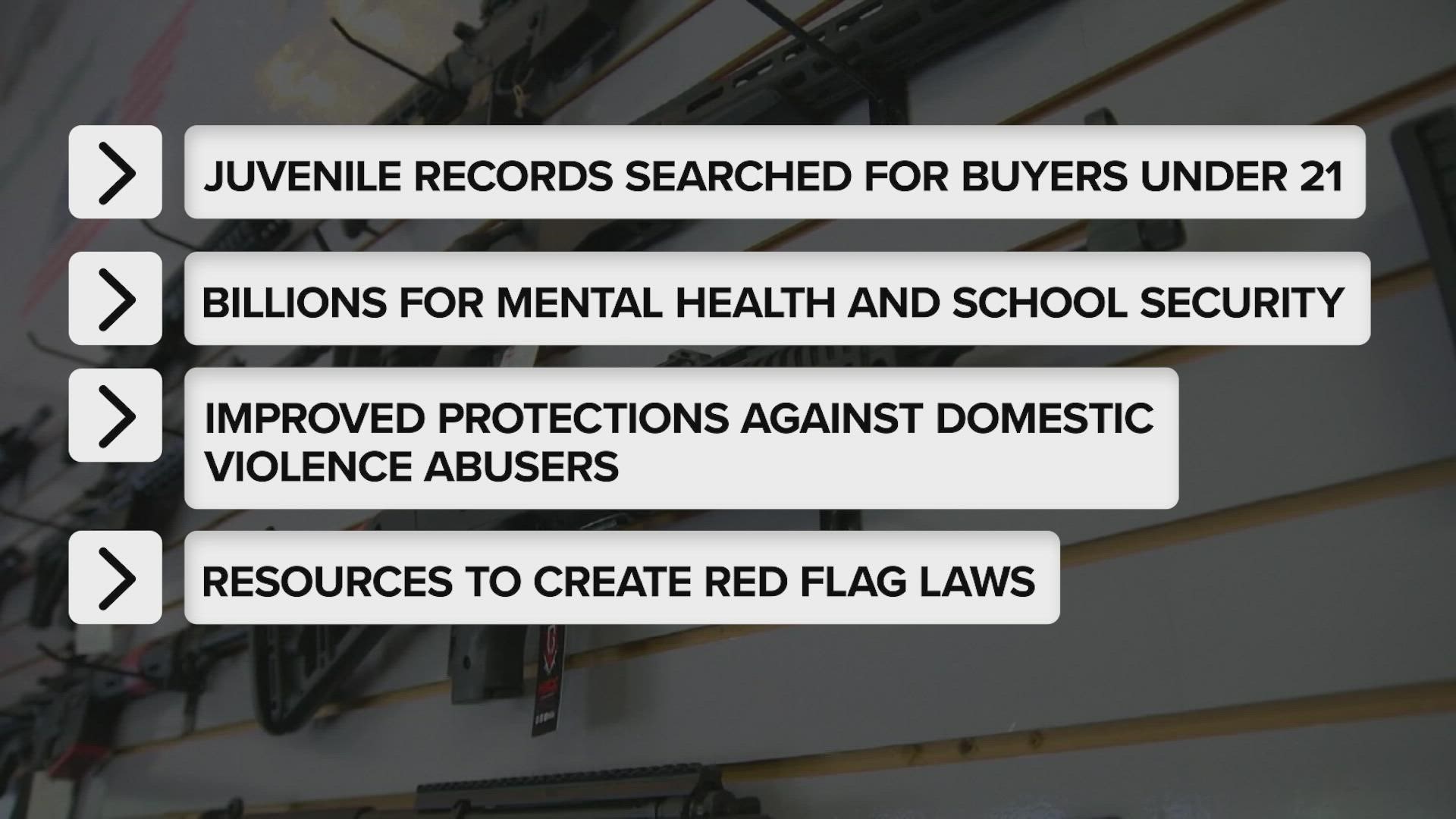DALLAS — Nearly three weeks after a shooter killed 19 children and two teachers in Uvalde, U.S. senators announced an agreement related to gun safety Sunday, covering funding for mental health and school safety and changes to background checks and protections for domestic violence survivors.
“Let me just say there’s still a lot of work to do,” Sen. Chris Coons (D-Delaware) said. “There’s still a long way to go but I’m really encouraged by today’s announcement.”
Coons was part of a bipartisan group of 20 senators involved in the discussions, but Sen. Chris Murphy (D–Connecticut) and Sen. John Cornyn (R–Texas) led the effort.
Cornyn was not available for an interview Sunday but said in a statement, “Families are scared, and it is our duty to come together and get something done that will help restore their sense of safety and security in their communities.”
“We have to understand, nobody is going to get everything they want,” Cornyn said in a speech on the Senate floor last week.
There is no final text of the legislation available to read yet, but Cornyn and Murphy both released summaries of what was agreed to.
The agreement allows juvenile records to be searched during background checks for buyers under 21 years old and requires a pause period for the search, which includes state and local law enforcement records. The shooters in both Uvalde and in Buffalo, where 10 people were killed, were 18 years old.
It also provides billions of dollars of funding for school security and mental health services including suicide prevention programs and training for students and staff on safety measures.
Senators said the agreement would also close the so-called "boyfriend loophole" to restrict those convicted of domestic violence against someone they aren’t living with from owning weapons.
One of the most notable measure is incentivizing extreme risk or crisis intervention orders known as "red flag laws." Nineteen states and Washington, D.C. have some version of a red flag law. The agreement would leave the decision to adopt a red flag law up to states.
Following a shooting that killed 10 people at a high school in Sante Fe, Texas, Gov. Greg Abbott voiced support for the possibility of a red flag law but that has never materialized.
Some conservatives and gun rights groups are already pushing against extreme risk or red flag laws.
“I don’t care who you are, you are entitled as a citizen of this country to due process,” Andi Turner, the legislative director at the Texas State Rifle Association, said.
Gov. Abbott, Lt. Gov. Dan Patrick and Texas House Speaker Dade Phelan couldn’t be reached for a comment Sunday.
Turner says focus should be on stronger punishments for gun crimes and enforcing current laws along with requirements for people to report threats they’re aware of.
“I don’t see how these plans are going to help - are going to help anything,” she said.
The agreement also clarifies the definition of a federal firearms dealer, which is required to follow a much more thorough set of laws and crack down on illegally trafficking guns through straw purchases.
In a statement, President Joe Biden said, “Obviously, it does not do everything that I think is needed, but it reflects important steps in the right direction, and would be the most significant gun safety legislation to pass Congress in decades. With bipartisan support, there are no excuses for delay, and no reason why it should not quickly move through the Senate and the House.”
“Responsible gun ownership, gun safety, should be mandatory and that’s what we’re working towards here,” David Hogg, a survivor of the Parkland High School shooting and founder of March for our Lives, said.
The bill doesn’t ban assault weapons or high capacity magazines, raise the age to buy a gun to 21 or require universal background checks, which is what some gun safety advocates had pushed for.
“We all want our communities to be safe and to keep our kids safe not just in our schools but outside of them as well where the majority of kids do end up dying from gun violence,” Hogg said.
It’s an agreement unlikely to make advocates on either side excited, but any life saved is a success.
“Frankly, to come up short in this moment, to deliver literally nothing again was just too hard a prospect to contemplate,” Coons said.

